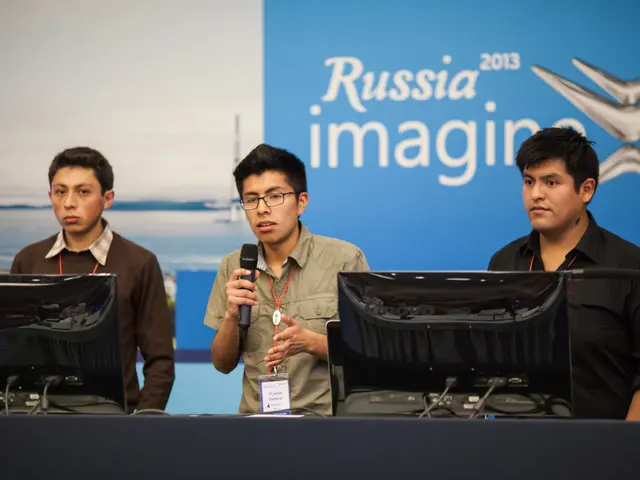Future Implications of Nuclear Energy on Economy and Society
In the heart of Europe's energy transition, the ECOSENS project has been making waves since its inception in 2022. Funded by the Euratom Research and Training programme under grant agreement No 1010609, this interdisciplinary project aims to assess public perception of emerging nuclear technologies, develop a methodology for assessing the sustainability of nuclear energy, and create an innovative economic model.
Over a period of three years, from 2022 to 2025, the ECOSENS project has generated a series of results with direct impact on the understanding of the social and economic aspects associated with the implementation of emerging nuclear technologies in Europe. The project involves specialists from social sciences, humanities, economics, nuclear energy research and policy, civil society representatives, and other stakeholders, creating a diverse and comprehensive approach.
The project's research on citizen's views and public participation explored citizens' perceptions of Small Modular Reactors' (SMRs) risks and benefits and their potential role in the future energy mix. It delved into underlying values and expectations for citizen engagement in nuclear energy decision-making, and citizens' motivations to engage in climate and energy-related protests.
To support informed decisions, the ECOSENS project offers innovative analytical tools to political decision-makers, enabling a documented analysis of different types of energy generation. The SoP-based model, derived from the System of Provision approach, is proposed to assess the socio-technical conditions of nuclear energy systems. This model has been tested through a multi-country analysis of eight European nations.
The SoP-based model is a flexible and explanatory tool for understanding nuclear Life Time Sustainability (LTS). It is structured across five key dimensions: socio-economic, political, technological, socio-cultural, and environmental. Each dimension identifies specific determinants: preconditions, enablers, and barriers.
The model focuses on understanding how nuclear infrastructures emerge, stabilize, or decline within specific national contexts, moving beyond conventional techno-economic analyses. It also aims to develop a methodology for assessing the sustainability of nuclear energy, which goes beyond traditional economic evaluations, integrating social and environmental perspectives across the entire life cycle of nuclear investment.
The ECOSENS project's social research aimed to open up the techno-scientific aspects of nuclear energy to the social, political, cultural, and ethical context. The data from the ECOSENS project is crucial for building effective communication and public engagement strategies. Through its integrated approach, the project provides a detailed picture of European citizens' perception of emerging nuclear technologies.
Moreover, the project intends to create an innovative economic model capable of overcoming the weaknesses of existing economic models, offering a set of indicators relevant not only for investors, but also for a wide range of stakeholders (consumers, governments, suppliers). This model, while still in development, holds promise for shaping the future of nuclear energy in Europe and beyond.
Read also:
- Rising state pension ages disproportionately impact a particular demographic, raising questions about the necessity of extending working years.
- Increase in mortality among seniors due to falls
- Inquiries Frequently Encountered
- Greece pursuing building techniques without the use of traditional heating methods







